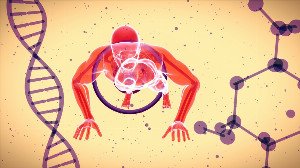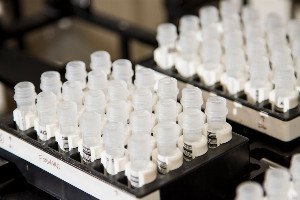Arief Purnama Muharram, Ayu Purwarianti
Enhancing Natural Language Inference Performance with Knowledge Graph for COVID-19 Automated Fact-Checking in Indonesian Language
Introduction
Enhancing natural language inference performance with knowledge graph for covid-19 automated fact-checking in indonesian language. Enhance Indonesian COVID-19 fact-checking performance. Knowledge Graphs boost Natural Language Inference (NLI) effectiveness in combating misinformation.
Abstract
Automated fact-checking is a key strategy to overcome the spread of COVID-19 misinformation on the internet. These systems typically leverage deep learning approaches through natural language inference (NLI) to verify the truthfulness of information based on supporting evidence. However, one challenge that arises in deep learning is performance stagnation due to a lack of knowledge during training. This study proposes using a knowledge graph (KG) as external knowledge to enhance NLI performance for automated COVID-19 fact-checking in the Indonesian language. The proposed model architecture comprises three modules: a fact module, an NLI module, and a classifier module. The fact module processes information from the KG, while the NLI module handles semantic relationships between the given premise and hypothesis. The representation vectors from both modules are concatenated and fed into the classifier module to produce the final result. The model was trained using the generated Indonesian COVID-19 fact-checking dataset and the COVID-19 KG Bahasa Indonesia. Our study demonstrates that incorporating KGs can significantly improve NLI performance in fact-checking, achieving a maximum accuracy of 0.8616. This suggests that KGs are a valuable component for enhancing NLI performance in automated fact-checking.
Review
This paper addresses the critical and timely issue of COVID-19 misinformation by proposing an enhanced natural language inference (NLI) approach for automated fact-checking in the Indonesian language. The authors correctly identify a common limitation in deep learning-based NLI systems: performance stagnation due to a lack of domain-specific external knowledge during training. Their core contribution lies in integrating a Knowledge Graph (KG) as an external knowledge source to mitigate this issue, aiming to significantly boost NLI performance for a vital application. This innovative approach offers a promising direction for improving the robustness and accuracy of fact-checking systems, particularly in contexts where domain knowledge is paramount. The proposed methodology is well-structured, featuring a three-module architecture designed to effectively leverage both semantic inference and structured knowledge. The fact module is responsible for processing information extracted from the COVID-19 Knowledge Graph Bahasa Indonesia, while the NLI module focuses on establishing semantic relationships between given premises and hypotheses. A key architectural decision is the concatenation of representation vectors from both modules, which are then fed into a classifier module to produce the final fact-checking decision. This design intelligently combines the strengths of deep learning for language understanding with the rich, structured insights provided by a KG, specifically trained and evaluated on a generated Indonesian COVID-19 fact-checking dataset. The study presents compelling evidence that incorporating Knowledge Graphs can substantially improve NLI performance in automated fact-checking. Achieving a maximum accuracy of 0.8616, the results underscore the significant value of external knowledge in enhancing the capabilities of deep learning models, especially for complex, domain-specific tasks like medical fact-checking. This finding strongly supports the hypothesis that KGs are an invaluable component for breaking through performance plateaus in NLI systems. The work makes a notable contribution to the field of natural language processing and its application in combating misinformation, demonstrating a practical and effective strategy for developing more accurate and reliable automated fact-checking tools.
Full Text
You need to be logged in to view the full text and Download file of this article - Enhancing Natural Language Inference Performance with Knowledge Graph for COVID-19 Automated Fact-Checking in Indonesian Language from Journal of ICT Research and Applications .
Login to View Full Text And DownloadComments
You need to be logged in to post a comment.
Top Blogs by Rating
Electro-Pulse: Unveiling the U...
By Sciaria
Life's Grand Algorithm: Is Bio...
By Sciaria
Beyond the Blueprint: Why Your...
By Sciaria
Favorite Blog
Unseen Engineers: Nanotech's B...
By Sciaria
The Invisible Load: Unveiling...
By Sciaria
Your Digital Shadow: What Stat...
By Sciaria





